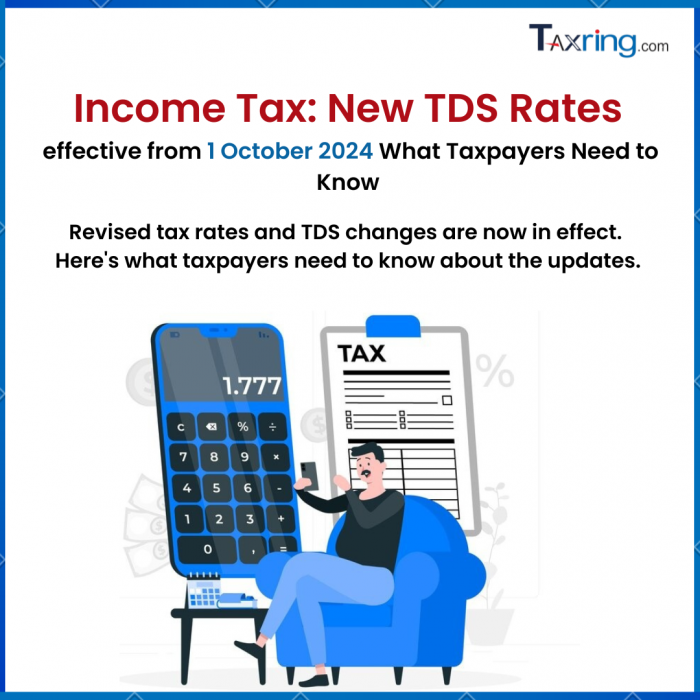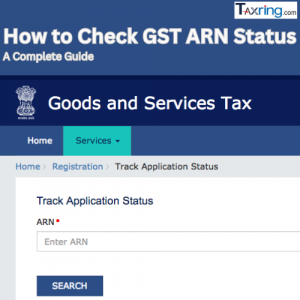
October 2024: Key Changes & New TDS Rate Chart in India
New TDS Rate Chart Key Changes Effective October 1, 2024
Income Tax The Union Budget 2024 has introduced significant updates to the Tax Deducted at Source (TDS) framework, effective from today, October 1, 2024. These changes affect various transactions, from rent payments to life insurance payouts. Here’s a breakdown of what taxpayers need to know.
Income Tax: What is New TDS Rate Chart?
TDS, or Tax Deducted at Source, is a taxation mechanism where tax is deducted at the point of payment and remitted directly to the government. The recipient can later claim credit for this tax based on their Form 26AS or TDS certificate.
New TDS Rate Chart: Key TDS Rate Changes
Here’s a summary of the major TDS rate revisions that are now in effect:
- Life Insurance Payouts (Section 194DA):
- New Rate: 2%
- Previous Rate: 5%
- Lottery Ticket Commissions (Section 194G):
- New Rate: 2%
- Previous Rate: 5%
- Rent Payments (Section 194-IB):
- New Rate: 2%
- Previous Rate: 5%
- Payments by Individuals/HUF (Section 194M):
- New Rate: 2%
- Previous Rate: 5%
- E-commerce Payments (Section 194-O):
- New Rate: 0.1%
- Previous Rate: 1%
- Mutual Fund Repurchase (Section 194F):
- New Rate: Omitted (previously subjected to TDS)
Additional Tax Changes
Several other important updates accompany the TDS revisions:
- Floating Rate Bonds:
A 10% TDS now applies to revenue exceeding rs10,000 annually on central and state government bonds, including floating rate bonds. - Share Buybacks:
Share buybacks are now subject to shareholder-level taxes, similar to dividends, potentially increasing the tax burden for investors. - Securities Transaction Tax (STT):
The STT on Futures & Options has risen to 0.02% and 0.1%, respectively. - Sale of Immovable Property:
A 1% TDS will apply to the sale of immovable property exceeding ₹50 lakh, regardless of the number of buyers or sellers involved.
Impact on Taxpayers
The lowered TDS rates on certain transactions may offer some relief, particularly for individuals and HUFs making rent payments or receiving insurance payouts. However, the increased STT and new buyback taxes could lead to higher financial obligations for investors.Income Tax
Conclusion
As these changes take effect today, it's crucial for taxpayers to understand how these updates will impact their financial obligations. Ensuring compliance with the new TDS rates will help avoid any complications in the future.
TDS Rate Chart (Effective October 1, 2024):
| Section | Description | New Rate | Previous Rate |
|---|---|---|---|
| 194DA | Life Insurance Payments | 2% | 5% |
| 194G | Lottery Ticket Commissions | 2% | 5% |
| 194-IB | Rent Payments | 2% | 5% |
| 194M | Payments by Individuals/HUF | 2% | 5% |
| 194-O | E-commerce Payments | 0.1% | 1% |
| 194F | Mutual Fund Repurchase | Omitted | TDS applicable |
Read also: Income tax budget 2024 income tax slab , TDS Payment Online:Due Dates for TDS Return FY 2024-25 , What is TDS?
1. What is TDS?
TDS, or Tax Deducted at Source, is a tax collection mechanism where tax is deducted at the point of payment and remitted directly to the government.
2. Who is responsible for deducting TDS?
The person or entity making a payment (such as an employer or service provider) is responsible for deducting TDS before disbursing the amount to the payee.
3. What are the different TDS rates applicable?
New TDS Rate Chart vary based on the type of payment and are prescribed under various sections of the Income Tax Act. Common rates include:
-
2% for life insurance payouts
-
2% for rent payments
-
0.1% for e-commerce transactions
4. How can I check my TDS credit?
You can check your TDS credit by accessing Form 26AS through the Income Tax Department's website or your income tax account.
5. What should I do if there’s a mistake in TDS deduction?
If there is an error:
- Verify the deduction before filing.
- Deposit any shortfall using a new challan.
- Amend your TDS return if necessary.
6. Is TDS deducted on payments made to the Government?
No, TDS is not deducted from payments made to:
- The Government
- The Reserve Bank of India (RBI)
- Certain exempt corporations
- Specified Mutual Funds
7. How often should TDS returns be filed?
TDS returns must be filed quarterly, with specific deadlines for each quarter as defined by the Income Tax Department.
8. What happens if TDS is not deducted or deposited on time?
Failure to deduct or deposit TDS on time may result in penalties, interest on the outstanding amount, and possible legal consequences.Income tax
9. Can I claim TDS deducted from my income tax?
Yes, you can claim TDS deducted as a credit against your total tax liability when you file your income tax return.
10. How are TDS rates revised?
New TDS Rate Chart can be revised through the annual Union Budget presented by the Finance Minister, where changes may be announced and implemented.




